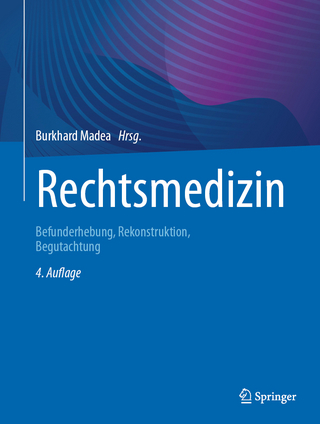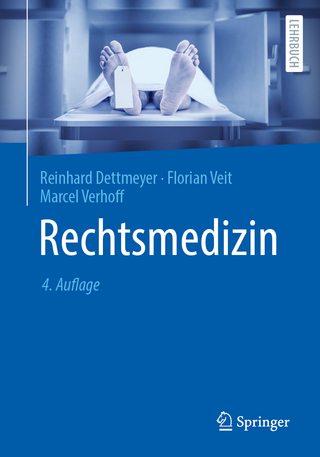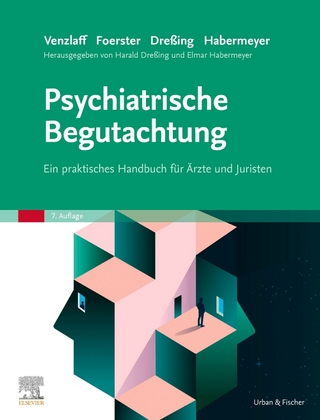
Bodies of Evidence
Medicine and the Politics of the English Inquest, 1830-1926
Seiten
2000
Johns Hopkins University Press (Verlag)
978-0-8018-6240-3 (ISBN)
Johns Hopkins University Press (Verlag)
978-0-8018-6240-3 (ISBN)
- Titel z.Zt. nicht lieferbar
- Versandkostenfrei innerhalb Deutschlands
- Auch auf Rechnung
- Verfügbarkeit in der Filiale vor Ort prüfen
- Artikel merken
The mere fact of its having survived from at least the twelfth century (some claimed for it an earlier, Saxon pedigree) lent the inquest the trappings of an exemplary embodiment of the 'genius of English reform.'"-from Bodies of Evidence
In Bodies of Evidence, Ian Burney offers an important reinterpretation of the role of the scientific expert in the modern democratic state. At the core of this study lies the coroner's inquest-the ancient tribunal in English law held to account for cases of unexplained death. During the nineteenth and early twentieth centuries, representatives of "progressive" medical science waged a determined campaign to align the methodology of the inquest with a medical model of investigation and explanation. Yet at the same time the inquest was framed within a second powerful and innovative discourse, one based on an appeal to the inquest as a time-honored bulwark of English popular liberties. Bodies of Evidence takes these parallel visions of the inquest as the point of departure for a wide-ranging examination of the historical process of negotiating expert authority in the public realm. By insisting on the dynamic interplay between the medical and political visions of the inquest, Burney calls into question many of the basic assumptions about the rise of science as a model for socially authoritative knowledge.
Among this study's central and innovative claims is that traditional narratives of the rise of expertise in the nineteenth century obscure the tension between the needs of modern governance on the one hand and the politics of expanding popular participation on the other. Along the way, Bodies of Evidence elegantly evokes the workings of one of the more curious institutions of English civil society, an institution whose somber duties before death were performed with surprising (and occasionally unnerving) vitality. Bringing the concerns of the cultural historian to bear on the histories of medicine and the law and integrating the perspectives of the "new" political history and the history and sociology of scientific knowledge, Bodies of Evidence is a theoretically nuanced and empirically rich account that will have a genuinely cross-disciplinary appeal. "It is not surprising that spokesmen for an emerging medicolegal community waged a sustained campaign to frame the inquest first and foremost as a tool of applied medical inquiry. But the modern inquest was simultaneously framed within a dynamic contemporary discourse of 'historical' popular liberties.
The mere fact of its having survived from at least the twelfth century (some claimed for it an earlier, Saxon pedigree) lent the inquest the trappings of an exemplary embodiment of the 'genius of English reform.'"-from Bodies of Evidence
In Bodies of Evidence, Ian Burney offers an important reinterpretation of the role of the scientific expert in the modern democratic state. At the core of this study lies the coroner's inquest-the ancient tribunal in English law held to account for cases of unexplained death. During the nineteenth and early twentieth centuries, representatives of "progressive" medical science waged a determined campaign to align the methodology of the inquest with a medical model of investigation and explanation. Yet at the same time the inquest was framed within a second powerful and innovative discourse, one based on an appeal to the inquest as a time-honored bulwark of English popular liberties. Bodies of Evidence takes these parallel visions of the inquest as the point of departure for a wide-ranging examination of the historical process of negotiating expert authority in the public realm. By insisting on the dynamic interplay between the medical and political visions of the inquest, Burney calls into question many of the basic assumptions about the rise of science as a model for socially authoritative knowledge.
Among this study's central and innovative claims is that traditional narratives of the rise of expertise in the nineteenth century obscure the tension between the needs of modern governance on the one hand and the politics of expanding popular participation on the other. Along the way, Bodies of Evidence elegantly evokes the workings of one of the more curious institutions of English civil society, an institution whose somber duties before death were performed with surprising (and occasionally unnerving) vitality. Bringing the concerns of the cultural historian to bear on the histories of medicine and the law and integrating the perspectives of the "new" political history and the history and sociology of scientific knowledge, Bodies of Evidence is a theoretically nuanced and empirically rich account that will have a genuinely cross-disciplinary appeal. "It is not surprising that spokesmen for an emerging medicolegal community waged a sustained campaign to frame the inquest first and foremost as a tool of applied medical inquiry. But the modern inquest was simultaneously framed within a dynamic contemporary discourse of 'historical' popular liberties.
The mere fact of its having survived from at least the twelfth century (some claimed for it an earlier, Saxon pedigree) lent the inquest the trappings of an exemplary embodiment of the 'genius of English reform.'"-from Bodies of Evidence
Ian A. Burney is a Wellcome Research Lecturer at the Centre for the History of Science, Technology and Medicine, University of Manchester.
Acknowledgments
Introduction
Chapter 1. The Genealogy of the Popular Inquest
Chapter 2. Registers of Death: Inquests and the Regime of Vital Statistics
Chapter 3. From the Alehouse to the Courthouse: Bodies and the Recasting of Inquest Practice
Chapter 4. Telling Tales of the Dead: Inquests, Expertise, and the Postmortem Question
Chapter 5. Fatal Exposures: Anesthetic Death and the Limits of Public Inquiry
Epilogue
Notes
Index
| Erscheint lt. Verlag | 17.3.2000 |
|---|---|
| Zusatzinfo | 2 Line drawings, black and white; 6 Halftones, black and white |
| Verlagsort | Baltimore, MD |
| Sprache | englisch |
| Maße | 152 x 229 mm |
| Gewicht | 283 g |
| Themenwelt | Studium ► 2. Studienabschnitt (Klinik) ► Rechtsmedizin |
| Studium ► Querschnittsbereiche ► Geschichte / Ethik der Medizin | |
| ISBN-10 | 0-8018-6240-X / 080186240X |
| ISBN-13 | 978-0-8018-6240-3 / 9780801862403 |
| Zustand | Neuware |
| Haben Sie eine Frage zum Produkt? |
Mehr entdecken
aus dem Bereich
aus dem Bereich
Befunderhebung, Rekonstruktion, Begutachtung
Buch | Hardcover (2024)
Springer (Verlag)
199,99 €
Ein praktisches Handbuch für Ärzte und Juristen
Buch | Hardcover (2020)
Urban & Fischer in Elsevier (Verlag)
240,00 €


